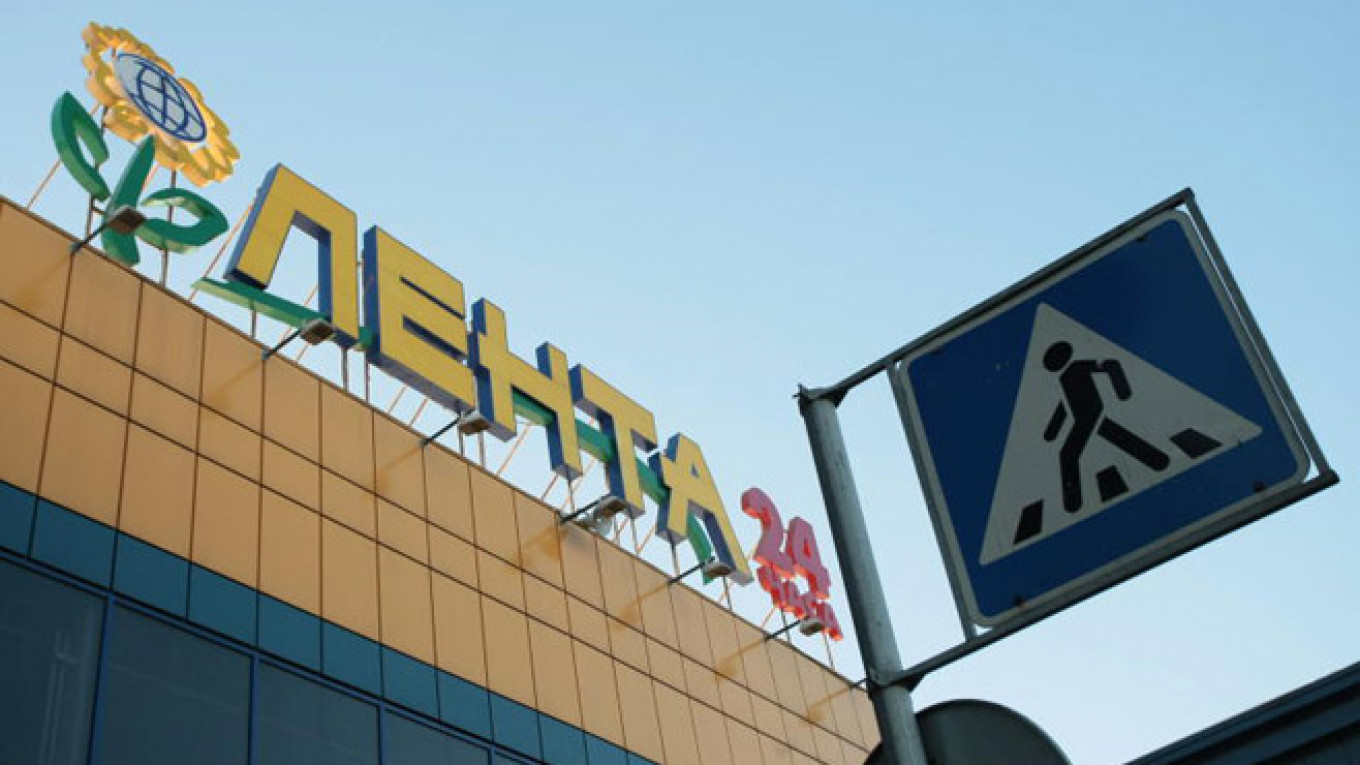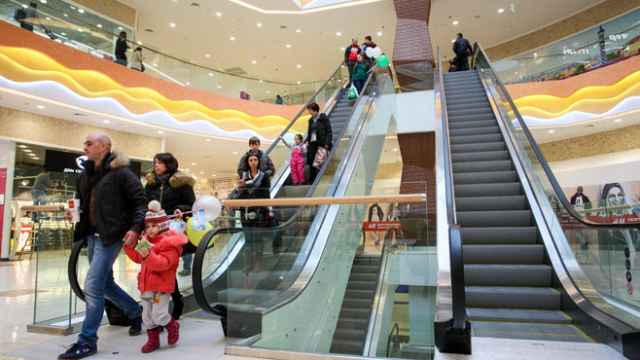ST. PETERSBURG — Russian budget hypermarket chain Lenta is looking to roll out a smaller grocery store format to more cities after its pilot project in Moscow proved successful, its chief executive said in an interview.
While Russia's economy lurches into recession and a decline in the ruble has fueled inflation, Lenta, backed by U.S. private equity firm TPG and Russian bank VTB, hopes its low-price focus will help attract cash-strapped consumers. It forecast sales growth of 34 to 38 percent in 2015, indicating it could keep pace with last year's 34.5 percent growth to 194 billion rubles ($3.2 billion). "Since October, every month has come in stronger than a month before. And the first days of March are quite encouraging," CEO Jan Dunning said. Russia's sixth-largest food retailer by sales said it plans to open 10-15 supermarkets this year in and around Moscow, as well as adding 20-25 hypermarkets in various regions. It has opened 24 smaller supermarkets, each with a sales area of around 1,000 square meters in the Moscow area over the past two years, and sees potential for more. Its standard hypermarkets have a sales area of 7,000 square meters. "We have decided to [consider] rolling it out to other cities," Dunning said of the smaller format. "It's past the pilot phase and we will also be growing it in Moscow," added the Dutchman in an interview at the company's headquarters in St. Petersburg. Russian annual inflation is running at around 17 percent, spurred also by a food import ban, imposed by Moscow last year in retaliation for Western sanctions over the Ukraine crisis. Households have reduced spending, benefiting budget retailers such as Lenta and Magnit, and have cut back on non-essentials, primarily non-food purchases.No Parties
Dunning said it made sense for Lenta to develop the smaller format to reach consumers who find it difficult to get to stores without a car or live in urban districts lacking modern shops. It could open up in St. Petersburg first and would explore opportunities in all other cities where it has distribution centers, he said. "Although we'll have soon 18 hypers in St. Petersburg, there are still areas where, if you want to come to a Lenta, you have to take a car because it's simply too far off. In the current situation not everyone will be thinking of buying a car." As evidence of the hit to consumer confidence from Russia's economic problems, Dunning said customers who stock up for parties "disappeared totally" in September and only re-emerged in December and then ahead of holidays in February and March. Lenta is rare among Russian grocers for making use of data from loyalty cards to track changes in consumer behavior and respond with targeted promotions. Its customer numbers steadily increased in 2014. Lenta has seen 7.7 percent growth in its like-for-like customers so far in 2015, the highest in almost 18 months. "On the business performance we get more and more secure. I feel more confident now than I was in January because I've seen now we are in the third month and we are doing pretty well."A Message from The Moscow Times:
Dear readers,
We are facing unprecedented challenges. Russia's Prosecutor General's Office has designated The Moscow Times as an "undesirable" organization, criminalizing our work and putting our staff at risk of prosecution. This follows our earlier unjust labeling as a "foreign agent."
These actions are direct attempts to silence independent journalism in Russia. The authorities claim our work "discredits the decisions of the Russian leadership." We see things differently: we strive to provide accurate, unbiased reporting on Russia.
We, the journalists of The Moscow Times, refuse to be silenced. But to continue our work, we need your help.
Your support, no matter how small, makes a world of difference. If you can, please support us monthly starting from just $2. It's quick to set up, and every contribution makes a significant impact.
By supporting The Moscow Times, you're defending open, independent journalism in the face of repression. Thank you for standing with us.
Remind me later.






